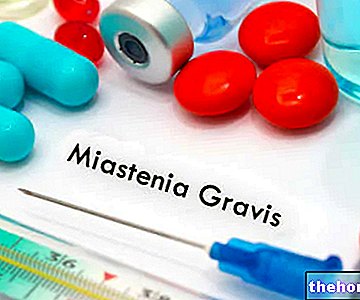KCL RETARD ® is a potassium chloride based drug
THERAPEUTIC GROUP: Minerals - Potassium

Indications KCL RETARD ® - Potassium
KCL RETARD ® is indicated in the prevention and treatment of potassium deficiencies, including symptomatological ones.
Prolonged diarrhea and vomiting, use of thiazide diuretics, treatment with digitalis, abuse of laxatives, liver and kidney diseases, are just some of the conditions associated with a marked potassium deficiency.
Mechanism of action KCL RETARD ® - Potassium
KCL RETARD ® is a drug capable of gradually releasing potassium chloride at the level of the gastrointestinal mucosa, thus ensuring delayed absorption over time and above all avoiding accumulation in granules, potentially dangerous given the irritative capacity towards the various mucous membranes.
The potassium taken is largely part of the endogenous potassium pull, acting as a cofactor of numerous enzymes, mainly involved in the catabolic and ergogenic pathways, and reconstituting the intracellular share of this trace element, necessary both to maintain the correct cellular osmolarity and the membrane potential , useful in the genesis of the action potential, therefore in the neuro-muscular conductivity.
Potassium deficiencies, fortunately rare given the abundant presence of this mineral in nature, nevertheless have repercussions on numerous biological activities, manifesting themselves macroscopically with severe asthenia and malaise and reduced capacity for nerve transmission.
Studies carried out and clinical efficacy
1. POTASSIUM AND HEMOSTASIS
Acta Cardiol. 2011 Oct; 66: 635-9.
Potassium supplement ameliorates salt-induced haemostatic abnormalities in normotensive subjects.
Liu F, Mu J, Yuan Z, Zhang M, Zheng S, Lian Q, Liu E, Xu H, Ren K, Huang Q.
Interesting study that demonstrates how potassium supplementation could improve haemostatic abnormalities induced by diets with a high salt content, reducing the incidence of cardiovascular diseases.
2. THE CONSEQUENCES OF POTASSIUM ABUSE
West J Emerg Med. 2010 Feb; 11: 57-9.
Fatal dysrhythmia following potassium replacement for hypokalemic periodic paralysis.
Ahmed I, Chilimuri SS.
Emblematic case report, which demonstrates how the excessive administration of potassium, even for the treatment of severe hypokalaemia, could cause rebound hyperkalaemia with fatal consequences for the patient.
3. INTEGRATION WITH POTASSIUM IN BED PATIENTS
Int J Surg. 2008 Aug; 6: 287-8. Epub 2008 Mar 28.
Oral potassium supplementation in surgical patients.
Hainsworth AJ, Gatenby PA.
Study that focuses on the need to supplement potassium salts in hospitalized patients and undergoing surgery. Despite the important benefits derived from oral supplementation, it is necessary to consider that in bedridden patients taking potassium by mouth could increase the incidence of esophageal ulceration, stenosis and gastritis.
Method of use and dosage
KCL RETARD ®
Prolonged-release oral tablets of 600 mg potassium chloride.
The intake of 1 - 2 tablets two - three times a day, should be sufficient to satisfy the most demanding needs, and possibly to compensate for deficiencies.
The precise definition of the dosage, however, should be established by the doctor, after a careful medical examination and only after having established the potassium intake guaranteed by the diet.
It is recommended to take KCL RETARD ® on a full stomach in order to reduce irritation of the gastric mucosa.
Warnings KCL RETARD ® - Potassium
Before taking KCL RETARD ®, it is necessary to consult your doctor, so that he carefully assesses the state of health, the amount of potassium introduced through the diet and the possible presence of pathological conditions such as nephropathies, hyperkalaemia and heart diseases, incompatible with the " intake of potassium chloride.
In any case, the doctor should periodically supervise the patient's state of health, evaluating correct renal function and blood concentrations of electrolytes.
It is also useful to remember how the irritating action of potassium salts on the mucous membranes could aggravate pre-existing complications at the level of the gastric mucosa, worsening its course.
KCL RETARD ® contains sucrose, therefore its intake should be carried out with particular care in diabetic patients or patients suffering from glucose-galactose malabsorption.
PREGNANCY AND BREASTFEEDING
KCL RETARD ® is indicated in the treatment of potassium deficiency states also during pregnancy and in the subsequent lactation period, as long as this administration is supervised by your doctor.
Interactions
It is useful to remember how the simultaneous intake of potassium-sparing diuretics can accentuate the blood potassium increase, contributing to the onset of hyperkalaemia and related complications.
Contraindications KCL RETARD ® - Potassium
The use of KCL RETARD ® is contraindicated in case of hypersensitivity to the active ingredients or to their excipients, hyperkalaemia, renal and adrenal insufficiency, uremia, dehydration, diabetic acidosis, impaired gastrointestinal motility and hereditary periodic adynamia.
Undesirable Effects - Side Effects
The intake of potassium chloride, especially when carried out at high doses, could be responsible for the appearance of abdominal pain, vomiting and irritation of the gastrointestinal mucosa up to perforation in the most severe cases.
On the other hand, overdose may be responsible for hyperkalaemia with both renal and cardiac complications.
Note
KCL RETARD ® is a drug that can only be sold with a prescription.
The information on KCL RETARD ® - Potassium published on this page may be out of date or incomplete. For a correct use of this information, see the Disclaimer and useful information page.




























